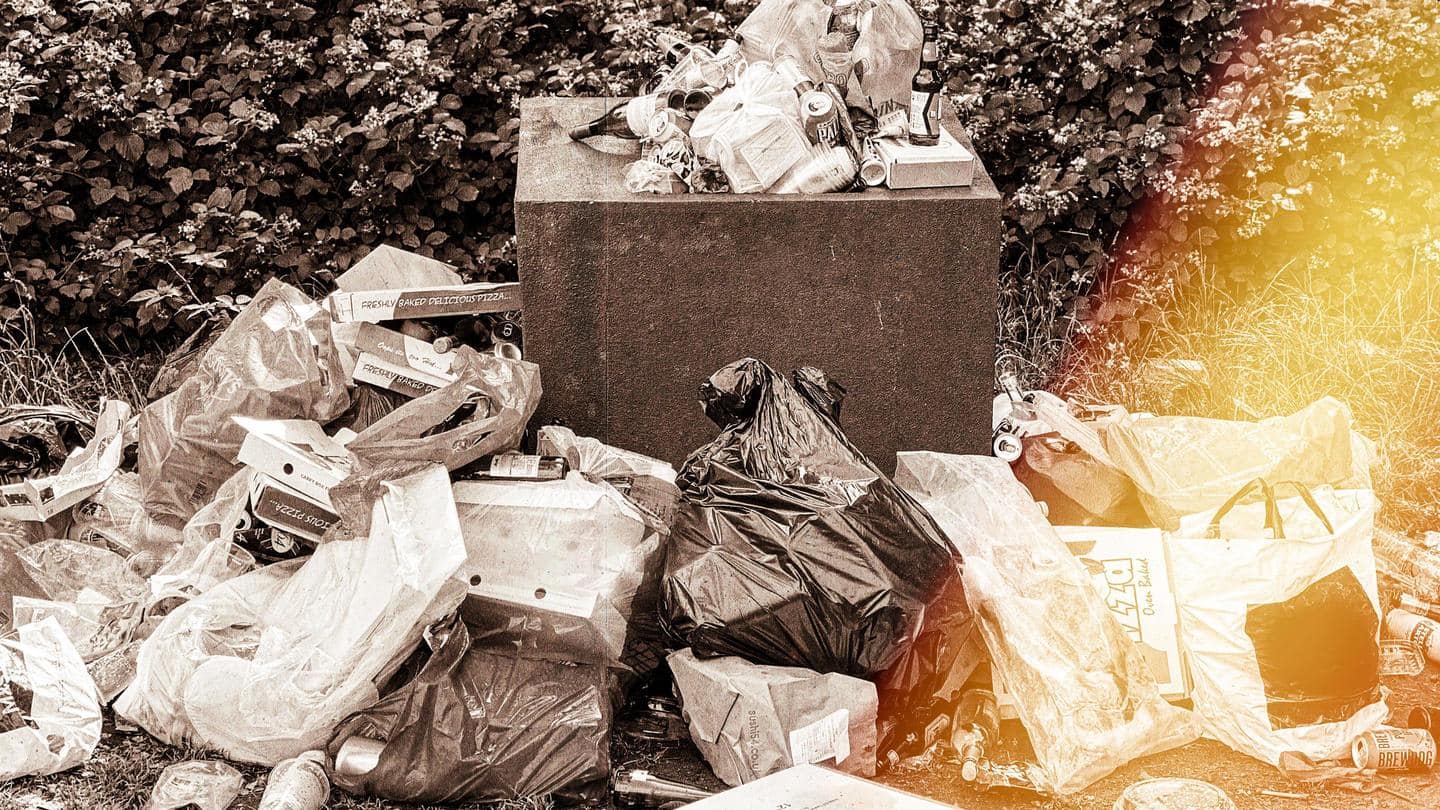
#NewsBytesExplainer: All about single-use plastic ban effective from today
What's the story
The ban on single-use plastic came into effect on Friday despite business organizations wishing for a gradual implementation rather than a blanket ban. Now, the state governments have been asked by the Union Ministry of Environment to initiate an enforcement campaign and close down units engaging in the production, distribution, stocking, and sale of such items.
Context
Why does this story matter?
Last year, the Ministry of Environment had notified the Plastic Waste Management Amendment Rules, 2021 banning single-use plastic. The plastic industry is worth Rs. 10,000 crore in India and its manufacturing employs nearly two lakh people directly and around 4.5 lakh indirectly. On the one hand, the ban is a welcome step toward environmental cleanliness. However, it will badly affect the livelihood of many.
About
What is single-use plastic?
Single-use plastic, as the name implies, refers to plastic goods that are used once and then discarded. It accounts for a sizable portion of all plastic manufactured and used in India. It is used in the packaging of items, including bottles for shampoo, detergents, and cosmetics. Polythene bags, coffee cups, cling film, garbage bags, and food packaging are also widely made out of plastic.
Applicability
Where does the prohibition apply?
As per the rules, the ban, starting from July 1, will apply to the manufacturing, import, stocking, distribution, sale, and use of single-use plastic items. It said the law would cover a range of rigid plastic items such as plates, cups, glasses, cutlery, wrapping or packaging films, PVC banners less than 100 microns, straws, and stirrers.
Punishment
What will happen if the law is violated?
According to the announcement, offenders will be penalized under the Environment Protection Act of 1986. The statute provides for a maximum sentence of five years in prison. The violators may also face a fine of up to Rs. 1 lakh. In some situations, both a prison sentence and a fine will be imposed.
Statement
What does the Environment Ministry say?
Union environment minister Bhupinder Yadav said that the government was expecting cooperation from the FMCG industry. "The micro, small and medium enterprises (MSMEs), which are currently manufacturing single-use plastics, would be urged to shift to making alternatives," he said. "We would run awareness programs. The government is committed to the initiative and will not take a step back," he said.
Reaction
How did the industry players respond?
Meanwhile, some fast-moving consumer goods (FMCG) companies and eateries have raced to comply with the single-use plastic ban on Friday. Companies and restaurant owners claimed they were hurrying to replace plastic utensils, straws, and containers but added that alternatives were pretty expensive. According to FMCG corporations, the restriction on single-use plastic would ultimately raise the cost of finished items and burden the consumers.